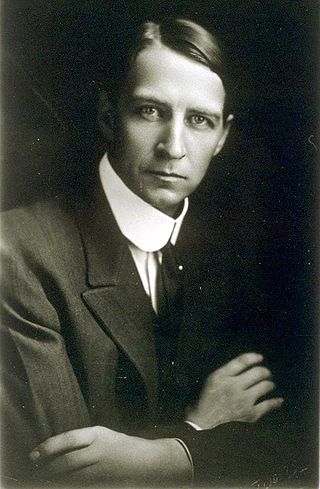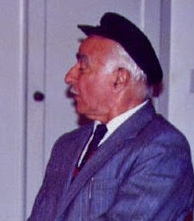Related Research Articles

A profession is a field of work that has been successfully professionalized. It can be defined as a disciplined group of individuals, professionals, who adhere to ethical standards and who hold themselves out as, and are accepted by the public as possessing special knowledge and skills in a widely recognised body of learning derived from research, education and training at a high level, and who are prepared to apply this knowledge and exercise these skills in the interest of others.
Roger Montgomery (1925–2003) was an American architect, and Professor at Washington University in St. Louis and University of California, Berkeley.
Wes Boyd is an American software developer and political organizer. In 1987, he and his wife Joan Blades co-founded Berkeley Systems, a San Francisco Bay area software company. After selling the company in 1997, Boyd and Blades went on to found the liberal political group MoveOn.org in 1998.

The San Francisco Committee of Vigilance was a vigilante group formed in 1851. The catalyst for its formation was the criminality of the Sydney Ducks gang. It was revived in 1856 in response to rampant crime and corruption in the municipal government of San Francisco, California. The explosive population growth following the discovery of gold in 1848 was cited as the source of the alleged need for the revival of the committee. The small town of about 900 individuals grew to a booming city of over 20,000 very rapidly. Founders alleged that the growth in population overwhelmed the previously established law enforcement, and led to the organization of vigilante militia groups.

The Spanish Benveniste family is an old, noble, wealthy, and scholarly Jewish family of Narbonne, France and northern Spain established in the 11th century. The family was present in the 11th to the 15th centuries in Hachmei Provence, France, Barcelona, Aragon and Castile.

Herbert Eugene Bolton was an American historian who pioneered the study of the Spanish-American borderlands and was a prominent authority on Spanish American history. He originated what became known as the Bolton Theory of the history of the Americas which holds that it is impossible to study the history of the United States in isolation from the histories of other American nations, and wrote or co-authored ninety-four works. A student of Frederick Jackson Turner, Bolton disagreed with his mentor's Frontier theory and argued that the history of the Americas is best understood by taking a holistic view and trying to understand the ways that the different colonial and precolonial contexts have interacted to produce the modern United States. The height of his career was spent at the University of California, Berkeley where he served as chair of the history department for twenty-two years and is widely credited with making the renowned Bancroft Library the preeminent research center it is today.

Parker J. Palmer is an American author, educator, and activist who focuses on issues in education, community, leadership, spirituality and social change. He has published ten books and numerous essays and poems, and is founder and Senior Partner Emeritus of the Center for Courage and Renewal. His work has been recognized with major foundation grants, several national awards, and thirteen honorary doctorates.
In sociology, the iron cage is a concept introduced by Max Weber to describe the increased rationalization inherent in social life, particularly in Western capitalist societies. The "iron cage" thus traps individuals in systems based purely on teleological efficiency, rational calculation and control. Weber also described the bureaucratization of social order as "the polar night of icy darkness".
Robert Lee Allen is an American activist, writer, and adjunct professor of African-American Studies and Ethnic Studies at the University of California, Berkeley. Allen received his Ph.D. in Sociology from the University of California, San Francisco, and previously taught at San José State University and Mills College. He was Senior Editor of The Black Scholar: Journal of Black Studies and Research, published quarterly or more frequently in Oakland, California, by the Black World Foundation since 1969.
Ian Irving Mitroff is an American organizational theorist, consultant and professor emeritus at the USC Marshall School of Business and the Annenberg School for Communication at the University of Southern California. He is noted for a wide range of contributions in the field of organizational theory from contributions on strategic planning assumptions and management information systems, to the subjective side of the workplace and spirituality, religion, and values.
Herbert Franz Schurmann was an American sociologist and historian who was best known for his research and writings about Communist China during the Cold War period.

Bureaucracy is a system of organization where decisions are made by a body of non-elected officials. Historically, a bureaucracy was a government administration managed by departments staffed with non-elected officials. Today, bureaucracy is the administrative system governing any large institution, whether publicly owned or privately owned. The public administration in many jurisdictions is an example of bureaucracy, as is any centralized hierarchical structure of an institution, including corporations, societies, nonprofit organisations, and clubs.
The International Institute for Educational Planning is an arm of UNESCO created in 1963 in Paris, France, with Headquarters in Paris, and Regional Offices in Buenos Aires and Dakar. It develops the capacities of education actors to plan and manage their education systems through its programmes of training, technical assistance, policy research and knowledge sharing.
Louis B. "Bert" Muhly was an American politician, academic, planning practitioner and social activist.
The PRECEDE–PROCEED model is a cost–benefit evaluation framework proposed in 1974 by Lawrence W. Green that can help health program planners, policy makers and other evaluators, analyze situations and design health programs efficiently. It provides a comprehensive structure for assessing health and quality of life needs, and for designing, implementing and evaluating health promotion and other public health programs to meet those needs. One purpose and guiding principle of the PRECEDE–PROCEED model is to direct initial attention to outcomes, rather than inputs. It guides planners through a process that starts with desired outcomes and then works backwards in the causal chain to identify a mix of strategies for achieving those objectives. A fundamental assumption of the model is the active participation of its intended audience — that is, that the participants ("consumers") will take an active part in defining their own problems, establishing their goals and developing their solutions.

Josip "Jozo" Tomasevich was an American economist and historian whose speciality was the economic and social history of Yugoslavia. Tomasevich was born in the Kingdom of Dalmatia, then part of Austria-Hungary, and after completing his formal schooling, he earned a doctorate in economics from the University of Basel in Switzerland. In the mid-1930s, he worked at the National Bank of Yugoslavia in Belgrade and published three well-received books on Yugoslavia's national debt, fiscal policy, and money and credit respectively.
Nayan Shah is Professor of American Studies and Ethnicity and History at University of Southern California. He received his doctoral degree in history at the University of Chicago and previously worked as a professor of history at University of California, San Diego and Binghamton University.
Jon Van Til is one of the pioneers in nonprofit organization research and education and the third sector, with particular interests in voluntary action, civil society and theories of the third sector. Dr. Van Til is Professor Emeritus of Urban Studies and Community Planning at Rutgers University, Camden.

Nathan Adler (1911–1994) was an American psychoanalyst, a lecturer in Criminology and Psychology at the University of California, Berkeley, and professor of clinical psychology at the California School of Professional Psychology at Berkeley/Alameda. Between 1965 and 1970 he conducted extensive clinical studies of drug users in the San Francisco Bay area. He authored the book The Underground Stream: New Lifestyles and the Antinomian Personality. In his youth, he wrote for several prominent leftist journals in New York and served on the editorial board of the New Masses.

Ideology and Organization in Communist China is a 1966 book by the American sociologist and sinologist Franz Schurmann that offers a sociological analysis of the Chinese Communist revolution It was first published by University of California Press in 1966, then in enlarged editions in 1968 and 1971. Schurmann used the sociological tools developed by Max Weber to analyze Mao Zedong's "dialectical conception of Chinese society" and how Mao structured his organizational approach to the Chinese Communist Party and the government.
References
- ↑ "Guy Benveniste February 27, 1927 - December 3, 2022". Chapel of the Chimes. Retrieved 21 March 2023.
- ↑ Benveniste, Guy (2010). From Paris to Berkeley. California: Create Space.
- ↑ Anonymous (Spring 1993). "Retirements: Guy Benveniste". Educator. 7: 36–37.
- ↑ Benveniste, Guy (1972). The Politics of Expertise . Berkeley: Glendassary. ISBN 9780877097198.
- ↑ Benveniste, Guy (1977). The Politics of Expertise, 2nd edition. San Francisco: Boyd & Fraser.
- ↑ Benveniste, Guy (1981). Regulation and Planning . San Francisco: Boyd & Fraser. ISBN 9780878350759.
- ↑ Benveniste, Guy (October 1968). "Toward a Sociology of Planning". Journal of Developing Areas. 3: 27–36.
- ↑ White, Jay (November–December 1991). "From Modernity to Post modernity: Two Views of Planning and Public Administration". Public Administration Review. 51 (6): 564–568. doi:10.2307/976607. JSTOR 976607.
- ↑ Benveniste, Guy (1970). Bureauracy and National Planning. New York: Praeger.
- ↑ Peterson, Paul E. (December 1973). "The Politics of Expertise". Social Service Review. 47 (4): 634–635. doi:10.1086/643068.
- ↑ Morrow, William (1973). "Princes, Pundits, and Policy Planning". Public Administration Review. 33 (3): 285–289. doi:10.2307/974806. JSTOR 974806.
- ↑ Kaufman, Jerry (Summer 1993). "Commentary on Guy Benveniste's Mastering the Politics of Planning". Planning Theory. 9: 8–76.
- ↑ Benveniste, Guy (1977). Bureaucracy. San Francisco: Boyd & Fraser.
- ↑ Benveniste, Guy (1987). Professionalizing the Organization . San Francisco: Jossey-Bass. ISBN 9781555420390.
- ↑ Benveniste, Guy (1994). The Twenty First Century Organization. San Francisco: Jossey-Bass.
- ↑ Cayer, Joseph (September 1995). "The Twenty First Century Organization". American Review of Public Administration. 25 (3).
- ↑ Benveniste, Guy (1998). The Twenty First Century Organization (in Chinese). Beijing: Glocal.